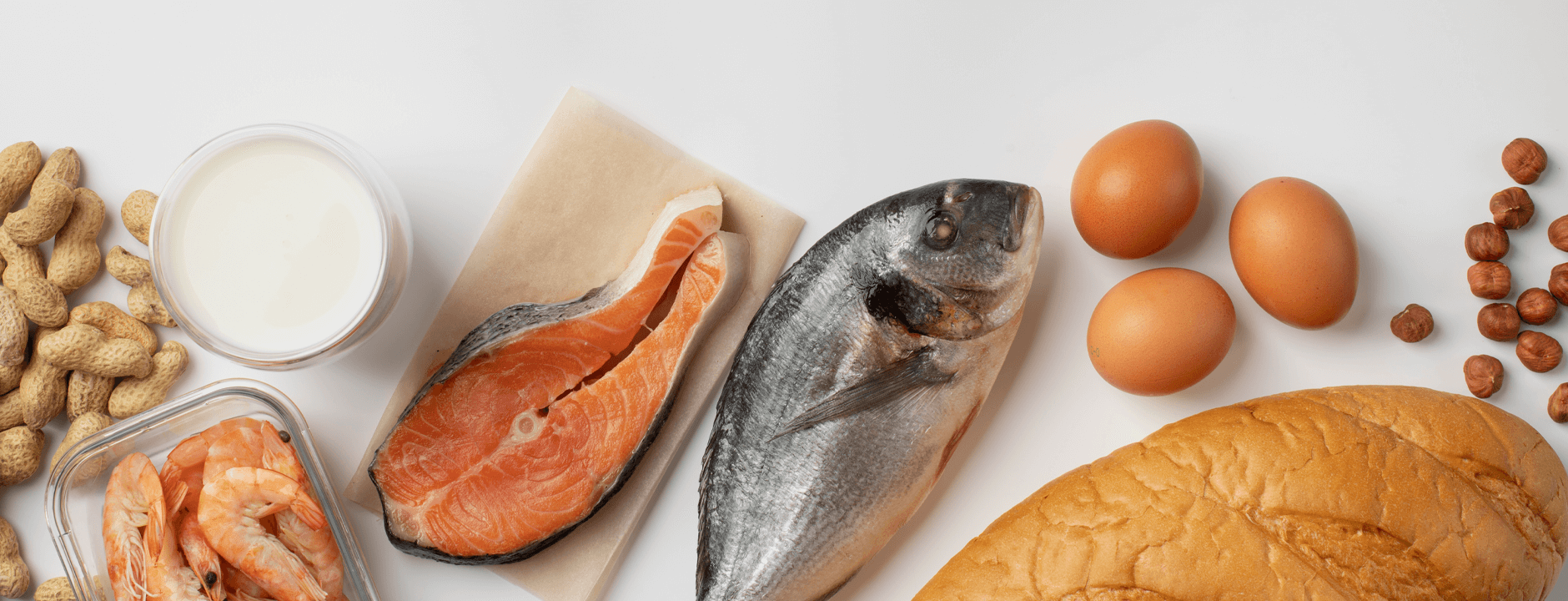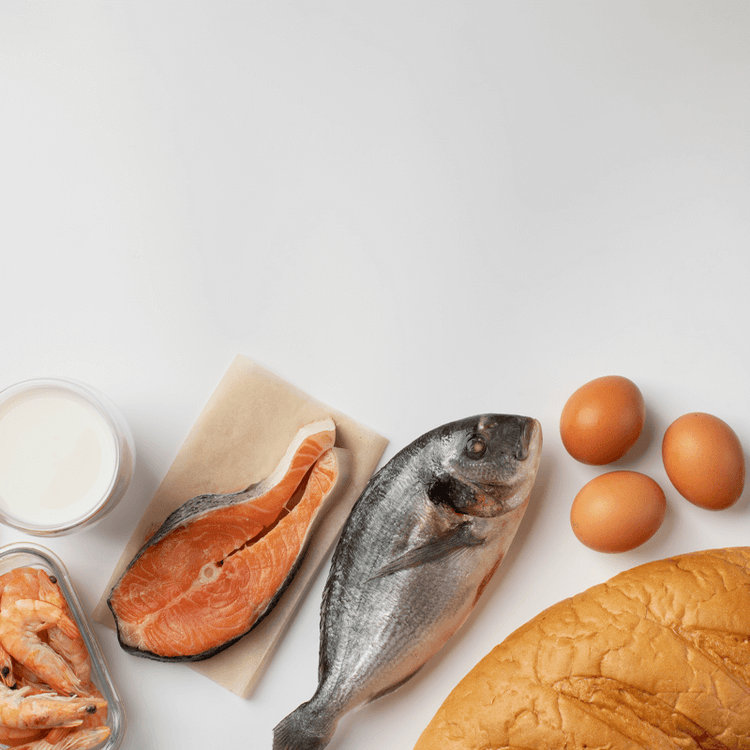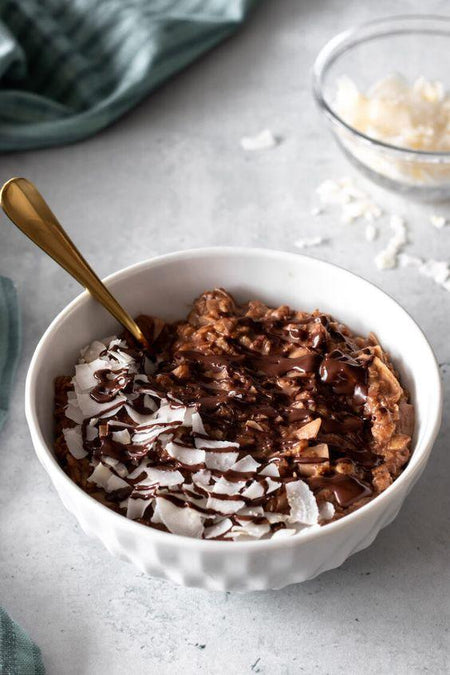In recent years, the word protein has become central to health and wellness circles, being discussed by people of all ages, backgrounds and lifestyles.
In the past , protein and its consumption were associated exclusively with bodybuilders and gym-goers . Today, this scenario has changed. Protein It is recognized for its universal importance in everyone's diet , whatever their lifestyle and age.
For these and other reasons, talking about protein becomes more important every day , because as its fame grows, new myths and truths also emerge .
Protein is a molecule made up of amino acids, which are like bricks in a building. She is essential for numerous biological functions in the human body .
It is the amino acids that form a larger molecule, which we call protein . It acts on hormone production, the effectiveness of the immune system and the transport of oxygen .
In addition to being essential for muscle growth and repair, proteins play critical roles in cellular structure and function. Protein is essential for muscle strengthening, development and recovery , and is present in virtually all vital processes for our body.
WHAT IS PROTEIN FOR:
Protein fulfills several vital functions in the human body:
Structural
Every cell in our body is partly made of proteins. They provide structure and are found in tissues and organs, and they also participate in the formation of collagen, which gives strength and elasticity to the skin.
Transport
Proteins like hemoglobin carry oxygen from the lungs to the tissues, while others help move nutrients and waste across cell membranes , such as RNA, which is responsible for carrying the data needed to produce other cells.
Defense
Critical components of the immune system, proteins are essential in the formation of antibodies that fight infections and invading bodies .
Without adequate protein replenishment , our immune system would be weakened, and we would not be able to resist invading pathogens efficiently.
If you want to know the ideal amount of protein you should consume daily, continue reading. Or read our article on the ideal amount of protein per day .
Energy
In situations where carbohydrates and fats are not present in sufficient quantities, proteins can be metabolized by the body to produce energy.
Muscles
Muscle growth and repair depend heavily on the presence of proteins . They are essential during and after exercise, for muscle recovery and injury prevention.
Consider adding a serving of protein to your diet before or after your physical activities.
Additionally, proteins such as keratin are important for the health of hair and nails, contributing to their healthy appearance and strength.
MAIN SOURCES OF PROTEIN AND WHERE TO FIND THEM
We meet our daily protein needs through a varied diet.
Although it is often associated with meat (animal origin), protein is widely distributed in foods of both animal and plant origin, as well as in supplements such as protein bars and whey , which is excellent for people with different dietary preferences :
Animal sources
Meat, fish, and eggs are rich sources of all the necessary proteins. Dairy products such as milk, yogurt, and cheese are also good sources of protein, providing a variety of additional nutrients, such as calcium.
Plant sources
For those following vegetarian or vegan diets, there are many protein-rich options, such as legumes (beans, lentils, chickpeas), nuts, seeds (chia and quinoa ), and whole grains (such as brown rice and oats).
Supplements
In some cases, it is concluded that intake through food alone is not sufficient, especially for athletes who have a greater demand for protein.
That's why protein bars and powdered supplements , such as Whey, help meet this need in a practical and efficient way . They are especially useful in busy routines or in situations where Preparing a balanced meal takes a lot of time.
If your days can get busy without warning, try our Whey , the Bold Cookies & Cream It is a practical and delicious combination that will certainly change your eating routine.
WHAT ARE THE TYPES OF PROTEIN?
There are different types of proteins that are classified according to their composition, function and structure. Understanding these differences helps you optimize their inclusion in your diet :
Composition
-
Simple proteins: Composed only of amino acids. They are easily digested and absorbed by the body, such as albumin.
-
Conjugated proteins: These include additional molecules such as lipids or carbohydrates that give them special functions, such as hemoglobin.
Function
-
Structural proteins: Provide support and strength to tissues, such as collagen, which is the most abundant protein in the human body.
-
Transport proteins: Crucial for moving nutrients and other elements through the circulatory system and cells , aiding in metabolism.
Structure
-
Complete proteins: These provide all the essential amino acids the human body needs. Examples include proteins found in animal products.
-
Incomplete proteins: These lack some of the essential amino acids and therefore need to be combined to form a balanced diet. Many plant proteins are considered incomplete , but can be supplemented with other protein sources.
-
Complementary proteins: Some plant sources combined provide a complete profile of essential amino acids. For example, rice and beans when eaten together.
WHAT ARE THE BENEFITS OF PROTEIN FOR THE BODY?
The benefits of proteins are many , covering aesthetic and vital aspects of the body:
Muscle recovery and growth
Protein is essential for post-exercise muscle recovery and growth . This process is highly dependent on adequate protein intake to repair muscle fibers that are torn during intense exercise.
On days when you skipped a meal or didn’t have time to prepare something healthy, try a BOLD protein bar . It’s great for busy, active routines , helping to keep your body getting the protein it needs, but with plenty of flavor.
Satiety and weight control
Protein-rich foods help provide a longer-lasting feeling of satiety, aiding in body weight management and preventing excessive calorie intake.
That's why protein can help with diets by producing a feeling of satiety.
Strength and performance
Athletes and individuals with active lifestyles benefit from consuming proteins, which are responsible for muscle growth and regeneration and improving physical performance.
Healing and immunity
Protein is necessary for cell renewal and rapid wound healing, as well as strengthening the immune response.
Hair, nail and skin health
The condition of hair, skin and nails reflects the quantity and quality of proteins consumed.
Metabolism and bone maintenance
Protein , in the form of enzymes, aids in metabolism and the way the body processes energy, while strengthening bone density.
HOW TO ENSURE PROTEIN IN YOUR DIET?
Integrating proteins into your daily diet is not a complicated task when you know the different sources available.
TO ENSURE REGULAR CONSUMPTION?
Eat a variety of protein foods throughout the day to balance your amino acids. This may include :
-
a breakfast of Greek yogurt and granola,
-
a lunch with chicken breast and vegetables,
-
or a dinner with tofu or fish.
When planning your meals , remember to include a source of protein in each meal, creating structurally rich dishes and ensuring that you get all the necessary nutrients.
For those with less time, supplements are always a great alternative . Use protein supplements in your morning meal , post-workout, or protein bars as a snack throughout the day.
ARE THERE RISKS TO CONSUMING PROTEIN?
While protein is crucial to keeping our bodies functioning, consuming too much is not beneficial . Consuming more protein than necessary can put extra stress on the liver and kidneys, the organs responsible for metabolizing and expelling the byproducts of protein metabolism.
In some circumstances, such as pre-existing health conditions (kidney disease), it is always advisable to consult a nutritionist or health professional before increasing protein intake.
WHEN TO CONSUME PROTEIN?
Regular protein intake should be daily and distributed throughout meals in a regular manner . Special attention is recommended to:
-
Before/during/post-workout: Protein intake before and after exercise helps with muscle recovery and improves performance. During training, a small amount can help maintain energy levels.
-
During the day: Consuming protein at every meal and snack can optimize digestion and absorption, leading to more efficient use of this energy source by the body.
To maintain good health and an ideal protein level, be sure to try our Bold Protein bars .
HOW MUCH PROTEIN DO WE NEED PER DAY?
The ideal amount of protein varies depending on several factors, such as age, gender, physical activity level, health goals, and body mass. It is important to note that standard recommendations may not fully meet everyone's needs .
WHAT HEALTH INSTITUTIONS SAY
The general dietary guidelines from the U.S. National Institutes of Health suggest an intake of 0.8 grams of protein per kilogram of body weight for sedentary adults . This means that a person weighing 70 kg should consume approximately 56 grams of protein per day .
VARIATION BY ACTIVITY
For athletes or individuals seeking muscle gain, protein needs may increase to about 1.2 to 2.0 grams per kilogram of body weight. Bodybuilding athletes , for example, tend to eat higher amounts of this recommendation to support muscle recovery and energy.
PROTEIN SPECIFIC ADJUSTMENTS
-
Age and Growth: Rapidly growing children and adolescents need a higher amount of protein to support development.
-
Pregnancy and Lactation: Pregnant or lactating women also have increased protein needs to support baby's growth and milk production.
-
Vegans and Vegetarians : For those following a vegan or vegetarian diet, additional planning may be necessary to ensure sufficient intake of essential amino acids using a combination of plant sources.
BUT, AFTER ALL, WHAT IS PROTEIN?
Protein is a fascinating molecule made up of long chains of amino acids, which are the building blocks of all life.
There are 20 different amino acids that combine in different ways to form thousands of different proteins, each with a specific function in the body.
About nine of these amino acids are considered essential, meaning our body cannot produce them and we need to obtain them through food. These essential amino acids include leucine, valine, histidine, and others that play key roles as building blocks of the body.
Protein is present in almost every fiber in our body, participating in the constitution of our muscles, bones, skin and blood . In addition, it plays a vital role in the production of hormones, enzymes and neurotransmitters, all of which are essential for the healthy functioning of the human body.
If you're looking to eat better and have a healthier, more active life, try one of our protein bars here now.
Did you like the content? Receive more like this straight to your inbox by subscribing to our newsletter .







